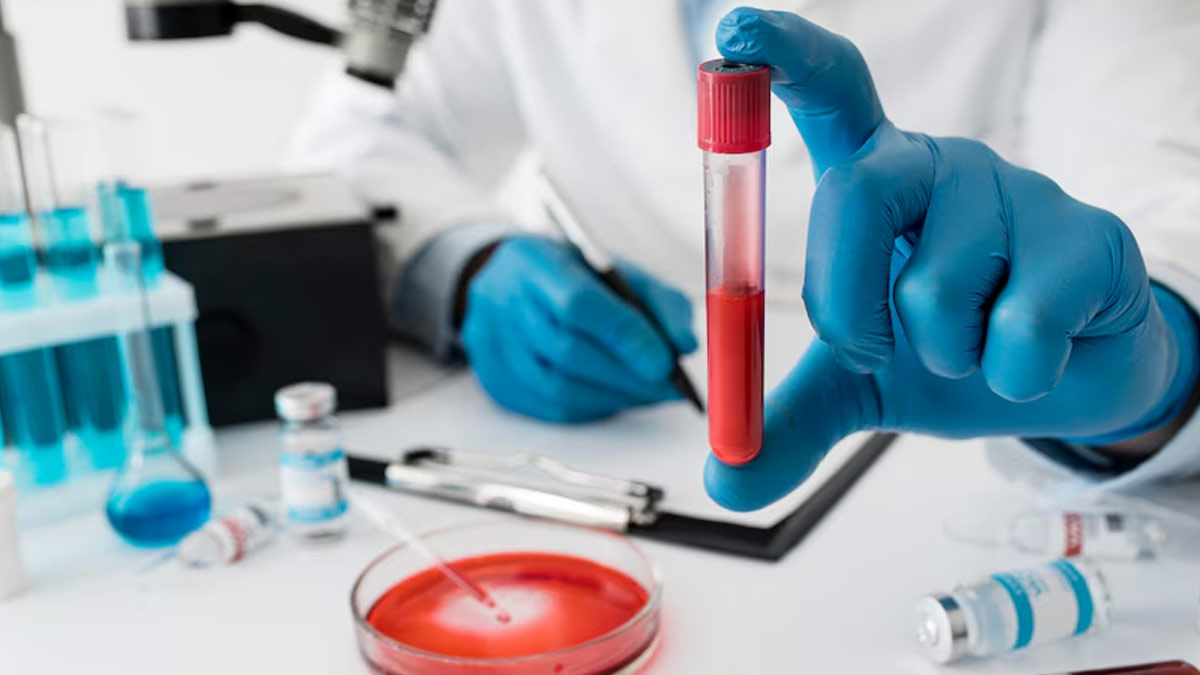
While the world is growing faster with technological developments, the field of medical science is moving ahead with it. Technology has helped doctors to cure and prevent major diseases and health conditions, the most common being cancer. Cancer is one of the preventable diseases and it can be cured if detected early.
Table of Content:-
A study published by National Institute of Health states, “Early detection of cancer or precancerous change allows early intervention to try to slow or prevent cancer development and lethality.”
In this article we will explore a new technique that can help in detecting cancer early for which OnlyMyHealth interacted with Dr (Prof) Vijay Patil, Consultant - Medical Oncology, P. D. Hinduja Hospital & MRC, Mahim, Mumbai.

What Is Liquid Biopsy?
Liquid biopsy is one of the methods that can help in early detection of cancer. Explaining what this is, Dr Patil said, “Liquid biopsy is the scientific name for analysis of circulating cell free DNA, circulating tumour cells or exosomes in body fluids like blood, urine, sweat, etc.”
Explaining further about the results of liquid biopsy, he said, “The commonest fluid tested is blood. At present liquid biopsy of blood has a proven role in lung cancer for mutation analysis, in colon cancer for selection of adjuvant systemic therapy and in certain blood tumours for treatment selection and prognosis prediction.”
According to Dr Patil, liquid biopsy is useful for mutation detection, prognosis prediction and monitoring for clonal evolution. It is also patient friendly as it is non-invasive and hence can be repeated multiple times and giving a real time idea about the cancer status.

Study Of Liquid Biopsy
Dr Patil was a part of a large study which was done in India that analysed the liquid biopsy in lung cancer patients with EGFR mutation. 158 people participated in the study and among them, the concordance rate between the tissue and blood was 75.4% at baseline prior to starting treatment. After the therapy started, only 25% patients had liquid biopsy which was positive. Dr Patil said, “The chance of disease coming back was much lower in patients who had liquid biopsy negative as opposed to liquid biopsy positive patients at 2 months.”
As per the study highlights share by Dr Patil:
1. All patients who have cancer and have mutation still the liquid biopsy can be negative
2. Patients in whom liquid biopsy was positive but it turns negative the prognosis of these patients is good
3. Liquid biopsy can pick up new mutations on follow up which can help for further treatment.

Challenges Of Conducting Liquid Biopsy
As easy as it sounds, liquid biopsy has many challenges that are to be overcome. As per Dr Patil, the technique of doing liquid biopsy is complicated. “It needs next generation sequencing machines, trained technicians and trained molecular oncologists. The sample collection, DNA extraction, library preparation, amplification of DNA and sequencing protocols have to be well defined and quality controlled. A detailed quality control algorithm of bioinformatic softwares and pipeline is a key. Hence use of liquid biopsy today is complementary to tissue biopsy,” Dr Patil said.
Conclusion
According to Dr Patil, liquid biopsy is being explored for the early detection of cancer. However, using this technique for cancer detection in the general population has very limited data. “We don’t have proven technology advances which show that using this technology helps the general population. However, once we get the technology to detect it, liquid biopsy will be instrumental in early detection, early treatment and improving treatment outcomes.” Concluding, Dr Patil said, “At present it has no role in early detection of cancer. At present its use is restricted in patients who have a known diagnosis of cancer and is not a suitable alternative for cancer detection in the general population.”
Also watch this video
How we keep this article up to date:
We work with experts and keep a close eye on the latest in health and wellness. Whenever there is a new research or helpful information, we update our articles with accurate and useful advice.
Current Version